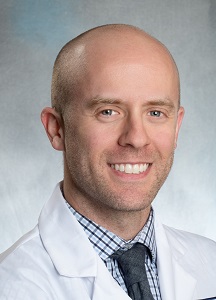MEMBERSHIP
Member Spotlight: Adam Fisch
 What is your name?
What is your name?
Adam Fisch, MD, PhD
- What is your professional title?
Anatomic Pathology resident
- How did you decide to enter the field/What (or who) brought you into the field?
I have been fascinated by genetics and its impact on disease since my first genetics course in college, which was taught by an inspiring professor. I then dove into genome biology as it relates to medicine during my PhD in pharmacogenomics, during which I was mentored by a very encouraging principal investigator. With the desire to incorporate genomics as a large component of my clinical practice, and after discovering my interest in surgical pathology, the decision to pursue a career combining anatomic pathology with molecular genetic pathology was a straightforward one, and has been cultivated by supportive faculty throughout training.
- What do you do? How would you describe your role?
I am currently a chief resident in anatomic pathology, meaning my schedule is divided between rotations in surgical pathology, preparation for board exams, and research. As a senior in the program, my role also includes many teaching opportunities, including in small team situations with junior residents, as well as during planned teaching conferences in surgical and molecular pathology.
- What degree(s) and/or training did you receive to achieve your position?
Upon completion of the Medical Scientist Training Program at the University of Maryland School of Medicine School of Medicine, I received an MD and a PhD. After matriculating to and completing most of my anatomic pathology residency at Massachusetts General Hospital, I entered an intercalated, Harvard-wide fellowship in Molecular Genetic Pathology at Brigham and Women’s Hospital, and have now returned to complete my residency this academic year.
- What is the greatest challenge you face in your work?
My greatest challenge at this stage in my career is striking a balance between clinical duties, educational opportunities as a trainee, and research. While it has become easier to manage throughout training, it is a constant work-in-progress.
- What is the best part of your work as you see it? (most interesting, fun…)
The best part of my work is discovering, through integrated surgical pathology and molecular diagnostics, that a patient with cancer is a candidate for targeted therapy. Communicating with our clinical colleagues and seeing the results of our daily work majorly impacting patients’ prognoses is exciting every single time. Furthermore, getting to participate in the research that elucidates tumor biology with clinical implications is an incredible privilege.






















